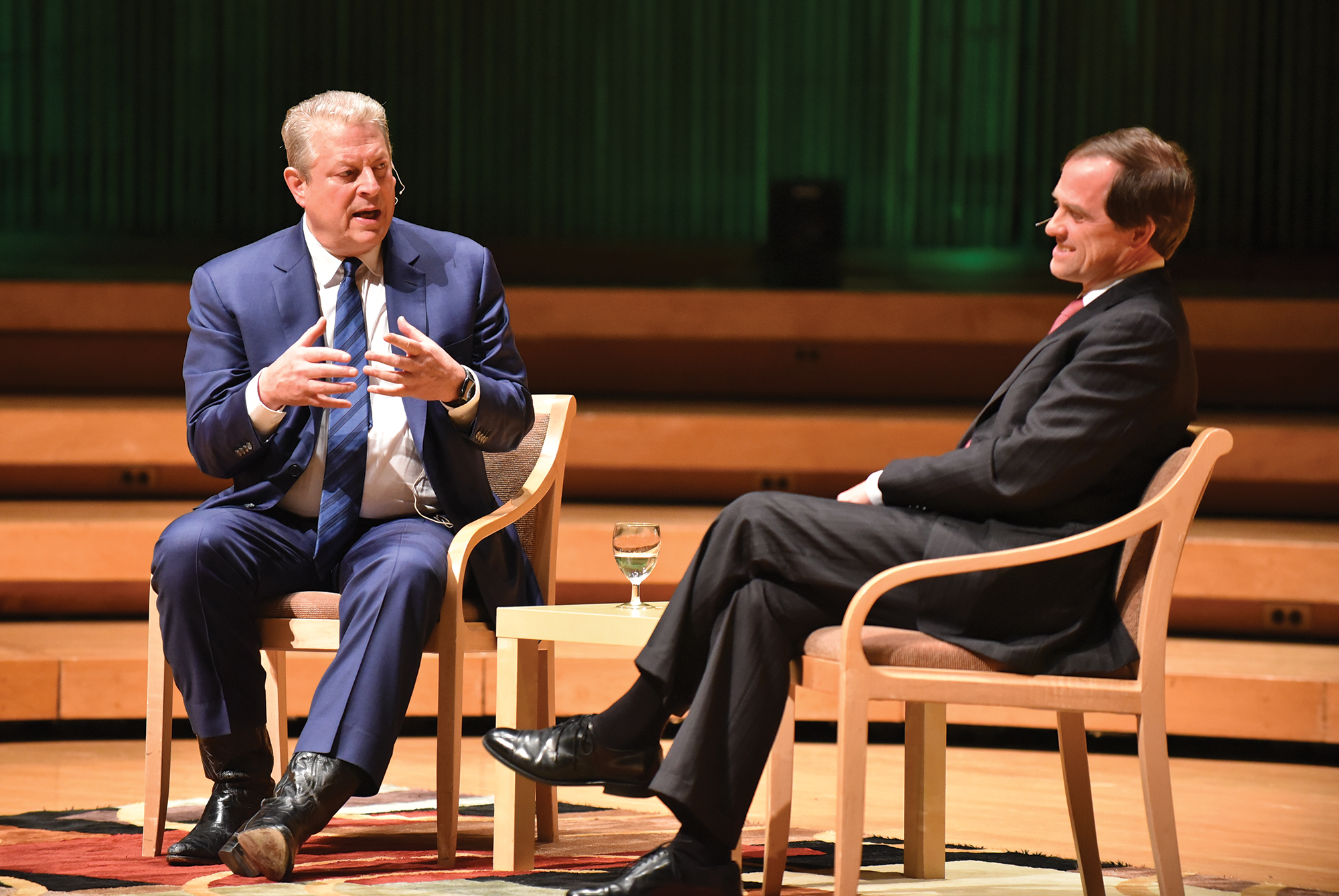Todd McGarvey, a University of Maryland public policy graduate student, said he sees climate, environmental and sustainability problems that cannot be solved overnight.
“They’re things that we have to continually work upon,” McGarvey said.
The university’s new Center for Global Sustainability, launched at the beginning of this month, will attempt to find innovative ways to solve these problems at the policy level. The center will be based within the public policy school and will offer guidance, advice and discussion about the climate change crisis to organizations and governments.
The center’s creation is part of the university’s efforts to move toward cleaner energy and a greener environment, said Nathan Hultman, the center’s director.
“There is an opportunity for us to bring our research for the public good into a much more visible venue in the international discussion,” Hultman said. “That’s really what the center’s motivation is.”
Though there are entities worldwide focused on combating climate change, this center will be unique given its position in a large research university designed for collaboration and close to Washington, Hultman said. The center will attempt to use the expertise and innovation of people involved to “get our research very deeply integrated into the policy discussion,” Hultman said.
Having the center on the campus provides an opportunity for students to engage with environmental issues, both in policy and in practice, said public policy graduate student Christina Bowman.
“The center is an incredible resource for students,” Bowman said. “I think that center and the University of Maryland is well-poised to become a leader in climate policy regionally, nationally and internationally.”
Drawing on resources from many areas, including engineering, social, policy and business, the center can teach students how to work in an interdisciplinary setting, which can be “very attractive to future employers,” McGarvey said.
Former Vice President Al Gore spoke about the center in a visit to the university March 1, and described its mission as “gathering the information upon which the world can make an assessment of how we’re doing.”
The university’s location near Washington is one reason why McGarvey said the center will play a role in the climate action discussion for a long time.
“I do think it will become a very valuable player in contributing to technical and analytical support to the leaders who are going to be making decisions and taking steps that are needed to address the climate change challenge,” he said.
Next, the center will focus on the Climate Action 2016 summit in May, in which the university will partner with major world players including the World Bank, United Nations Secretary-General Ban Ki-moon and the Global Environment Facility to discuss problems and solutions to climate change, Hultman said.
“This is an important opportunity for us to wave our flag and be out there in the international discussion in this area of climate, sustainability and energy,” Hultman said. “We have the opportunity to help shape the agenda, we are centrally placed in this convening to be visible and also to be helpful in pushing the agenda forward.”



